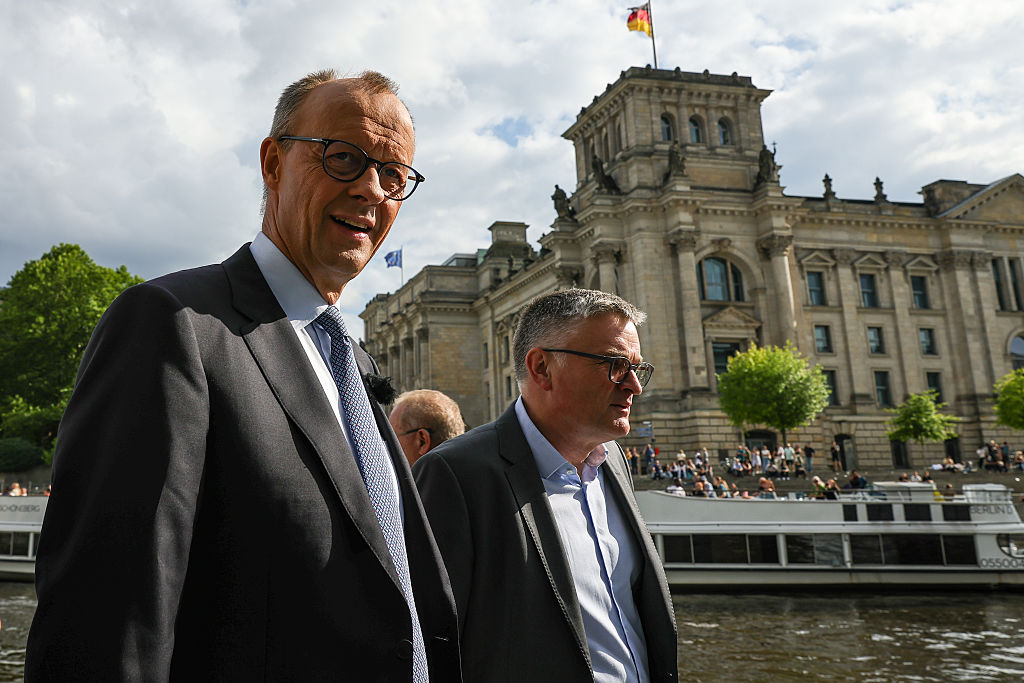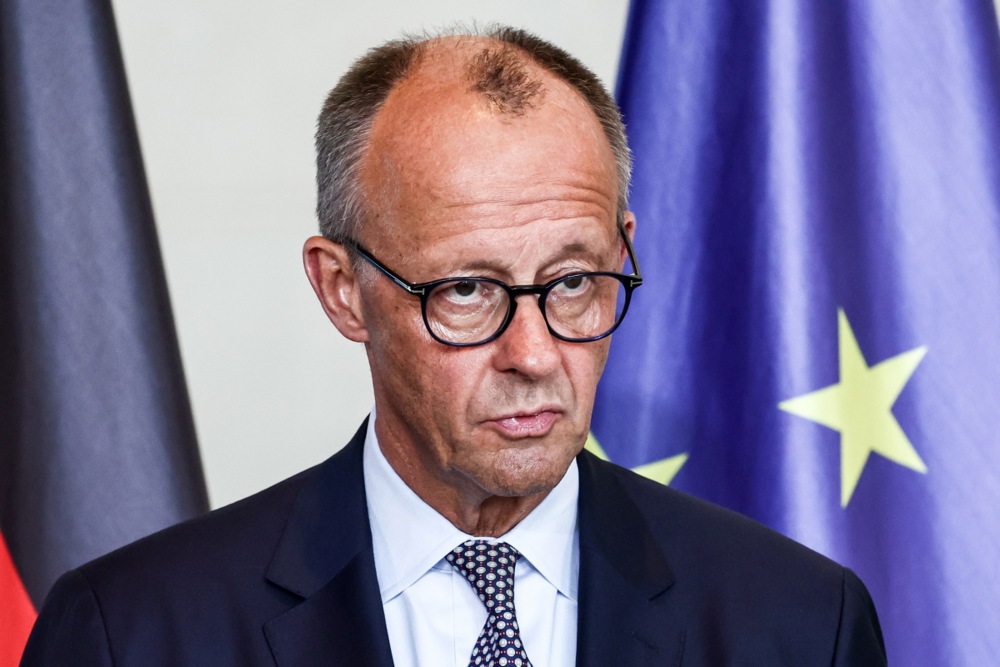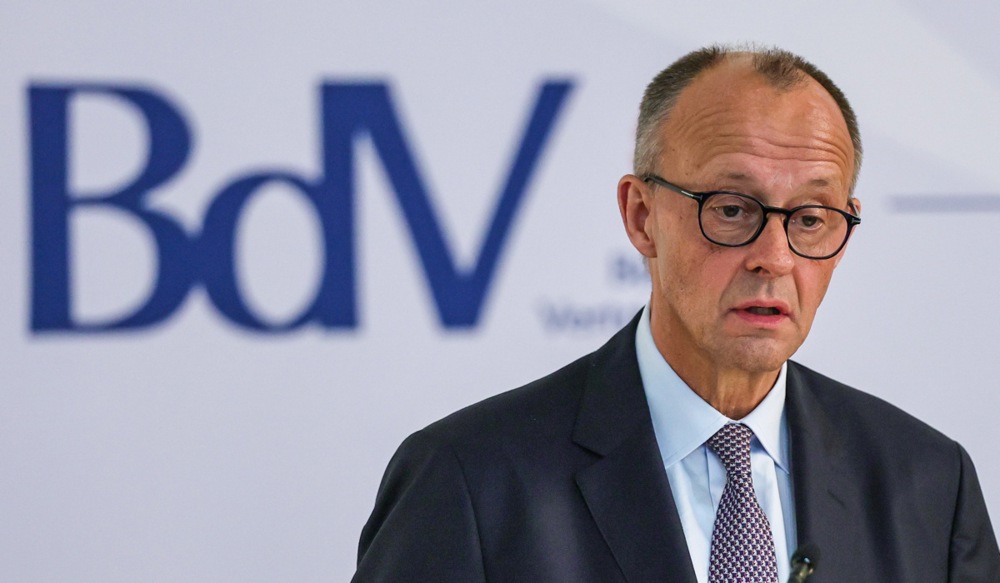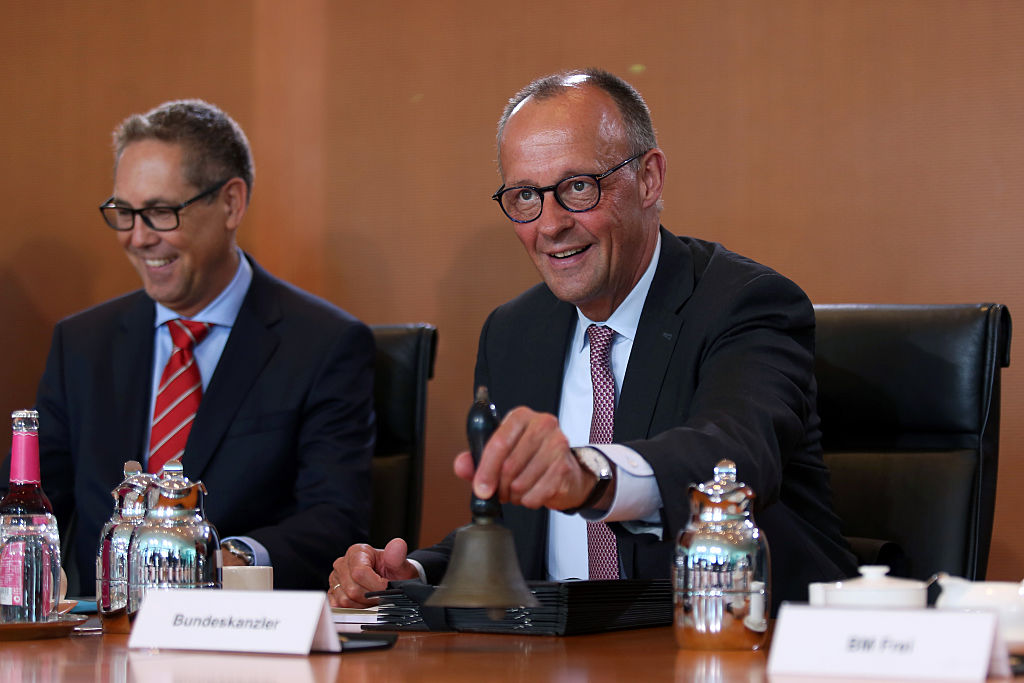German Chancellor Friederich Merz has warned that his country’s economy is no longer capable of financing its welfare state.
Merz made his stark warning at his Christian Democratic Union (CDU) party’s conference in Osnabrück, Lower Saxony on August 23.
He declared that Germany’s welfare state was no longer financially sustainable, highlighting the mounting economic pressures threatening the country’s extensive social support system. He signalled the need for urgent reforms.
“The welfare state as we have it today can no longer be financed with what we can economically afford,” Merz said.
He called for a “fundamental reassessment” of the benefits system, a move that has already drawn criticism from coalition partners and the opposition alike.
The German Chancellor further admitted he was not happy with his current government’s achievements.
“I’m not satisfied with what we have achieved thus far,” Merz told the Osnabrück audience, news outlet DW reported. “It has to be more.”
The welfare state, as we know it today, can no longer be financed with what we are achieving economically. That is why we will have to change it.
Friedrich Merz, CDU Party Congress in Lower Saxonypic.twitter.com/3m3EpmJWmC— Velina Tchakarova (@vtchakarova) August 25, 2025
The current ruling coalition partners had already agreed to reforming the social insurance system, which covers health insurance, pensions and unemployment benefits, due to rising costs and gaps in the federal budget.
Merz admitted that cuts in social welfare would be difficult, especially for his Social Democratic Party (SDP) coalition partner but called on both parties to work together.
The CDU and SPD have been at loggerheads regarding increased taxation on medium and high earners. Merz promised there would “not be any increase in income tax on medium-sized companies in Germany with this federal government under my leadership”, while the SPD refused to rule out a tax increase.
SPD Vice Chancellor Lars Klingbeil said there would be no cuts for workers when reforms were made.
“We will remain a country that helps people who have fallen onto hard times, who have got sick and need help,” he told the Funke media group on August 23.
Germany’s economy, once the powerhouse of Europe, has been in decline, with GDP shrinking by 0.3 per cent in 2023 and 0.2 per cent in 2024, marking the first consecutive years of contraction since the early 2000s.
Industrial production, a cornerstone of Germany’s economic strength, has continued to weaken, exacerbated by high energy prices, elevated interest rates and a shortage of skilled labour.
In the second quarter of 2025, GDP fell by another 0.3 per cent, confirming Germany’s slide into recession.
The Chancellor pointed to the spiralling costs of social programmes, which hit a record €47 billion in 2024 and are projected to rise further in 2025.
Germany’s welfare system, encompassing housing and child benefits, unemployment payments, family allowances and subsidies for the elderly and sick, is under strain as the population ages and unemployment rises.





